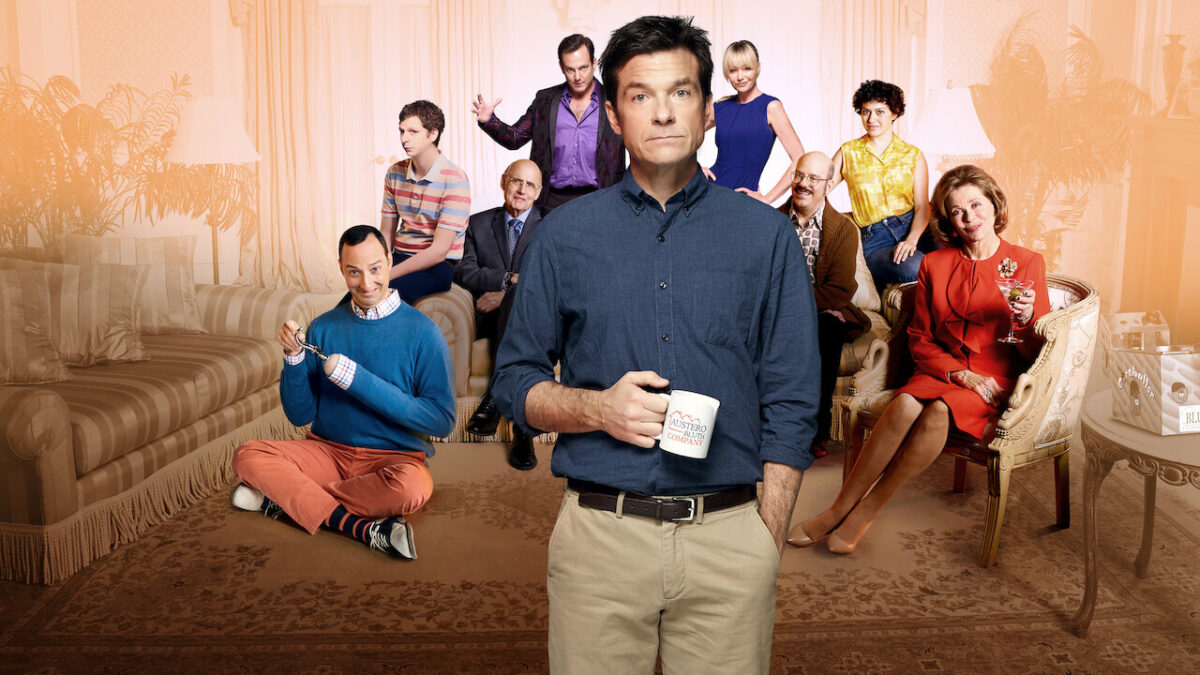Introduction:
“Arrested Development,” a cult classic television series created by Mitchell Hurwitz, defied conventions and redefined the sitcom landscape. Airing from 2003 to 2019, the show’s unique blend of sharp wit, intricate storytelling, and eccentric characters garnered a devoted fan base. In this comprehensive exploration, we will delve into the unparalleled humor, narrative complexity, character dynamics, and the impact of “Arrested Development” on the television comedy genre.
The Bluth Family Saga:
1. Premise and Setting:
“Arrested Development” revolves around the wealthy yet dysfunctional Bluth family, whose patriarch, George Bluth Sr., is arrested for white-collar crime. The series follows the misadventures of his son, Michael Bluth, as he attempts to keep the family business afloat and maintain some semblance of order within the eccentric Bluth clan.
2. The Model Home:
The Bluth family, residing in the fictitious Orange County, navigates a world of opulence, absurdity, and unchecked privilege. The model home, a symbol of their former wealth, becomes a focal point for comedic situations and family gatherings.
Iconic Characters and Performances:
1. Michael Bluth (Jason Bateman):
The straight man in a sea of chaos, Michael Bluth serves as the moral compass of the family. Jason Bateman’s understated yet hilarious portrayal anchors the series, providing a relatable lens through which viewers can navigate the absurdity.
2. George Michael Bluth (Michael Cera):
Michael’s son, George Michael, embodies the awkward teenager grappling with family complications and unrequited love. Michael Cera’s endearing performance contributes to the show’s appeal, capturing the essence of youthful awkwardness.
3. Lucille Bluth (Jessica Walter):
The matriarch of the Bluth family, Lucille, is a master of passive-aggressive manipulation and biting one-liners. Jessica Walter’s impeccable comedic timing and delivery established Lucille as an iconic character in television history.
4. Gob Bluth (Will Arnett):
Michael’s eccentric and magician brother, Gob, is a perpetual source of chaos. Will Arnett’s over-the-top performance and catchphrases like “I’ve made a huge mistake” have become synonymous with the show’s humor.
5. Tobias Fünke (David Cross):
A never-nude and aspiring actor, Tobias Fünke adds a layer of absurdity to the Bluth family. David Cross’s portrayal of the clueless, double entendre-prone character has become a fan-favorite.
6. Buster Bluth (Tony Hale):
The youngest Bluth, Buster, is a mama’s boy with a penchant for disastrous relationships. Tony Hale’s physical comedy and unique character quirks contribute to the ensemble’s comedic chemistry.
Innovative Storytelling:
1. Narrative Structure:
“Arrested Development” is known for its innovative narrative structure, employing flashbacks, running gags, and intricate callbacks. Episodes often intersect, revealing new layers of humor upon rewatching and rewarding dedicated viewers.
2. Running Gags and Callbacks:
The series is replete with running gags, from recurring phrases like “I’ve made a huge mistake” to the iconic chicken dances. The show’s ability to seamlessly weave these elements into the narrative fosters a sense of continuity and engagement.
3. Mockumentary Style:
“Arrested Development” adopts a mockumentary style with Ron Howard serving as the omniscient narrator. This stylistic choice provides a unique perspective, enhancing the comedic impact and allowing for meta-commentary on the characters’ absurdities.
Social Commentary and Satire:
1. Corporate Culture and Greed:
The Bluth family’s unscrupulous business practices and disregard for ethical behavior serve as a satirical commentary on corporate culture and the pursuit of wealth at any cost.
2. Political Satire:
“Arrested Development” incorporates political satire, with references to real-world events and societal issues. The show’s satire extends beyond the Bluth family, touching on broader themes of corruption, entitlement, and privilege.
3. Meta-Commentary on Television Tropes:
The series frequently breaks the fourth wall, offering meta-commentary on television tropes, the entertainment industry, and the nature of sitcoms. This self-awareness adds an extra layer of humor and sophistication.
Arrested Development’s Turbulent Journey:
1. Critical Acclaim and Awards:
Despite critical acclaim and a dedicated fan base, “Arrested Development” faced challenges with low viewership during its original run. However, it garnered several Primetime Emmy Awards, including Outstanding Comedy Series.
2. Cult Following and Resurrection:
The series achieved cult status in the years following its cancellation, with fans advocating for its return. In 2013, Netflix revived “Arrested Development” for a fourth season, and a fifth season followed in 2018.
3. Legacy and Impact:
“Arrested Development” has left an indelible mark on the television comedy genre. Its legacy is evident in the resurgence of interest in complex, character-driven comedies and the continued appreciation for its unique brand of humor.
Conclusion:
“Arrested Development” stands as a testament to the power of innovative storytelling, unforgettable characters, and biting satire in the world of television comedy. From its clever narrative structure to the eccentricities of the Bluth family, the series has carved a niche for itself in the hearts of fans and the annals of television history. As the dysfunctional Bluths continue to capture the imaginations of viewers, “Arrested Development” remains a masterclass in dysfunction, proving that laughter often thrives in the most chaotic of circumstances.
